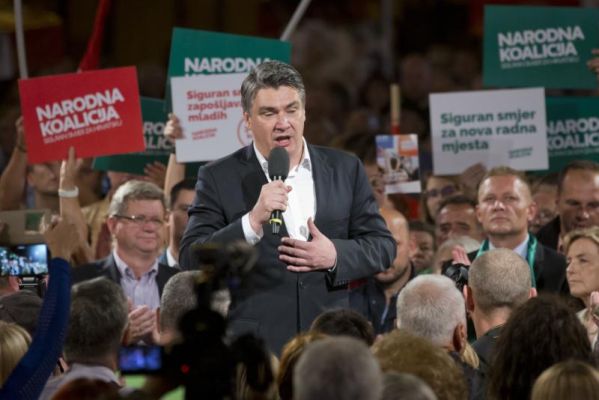-
Tips for becoming a good boxer - November 6, 2020
-
7 expert tips for making your hens night a memorable one - November 6, 2020
-
5 reasons to host your Christmas party on a cruise boat - November 6, 2020
-
What to do when you’re charged with a crime - November 6, 2020
-
Should you get one or multiple dogs? Here’s all you need to know - November 3, 2020
-
A Guide: How to Build Your Very Own Magic Mirror - February 14, 2019
-
Our Top Inspirational Baseball Stars - November 24, 2018
-
Five Tech Tools That Will Help You Turn Your Blog into a Business - November 24, 2018
-
How to Indulge on Vacation without Expanding Your Waist - November 9, 2018
-
5 Strategies for Businesses to Appeal to Today’s Increasingly Mobile-Crazed Customers - November 9, 2018
Croatia: elections, center-right headed for clear victory
According to the preliminary results on Monday morning, the HDZ party will have 61 seats in Croatia’s parliament after Sunday’s early elections.
Advertisement
Meanwhile, although most opinion polls before the elections predicted that the People’s Coalition, led by Social Democratic Party, SDP, would win most seats, on Monday, the party had to confront the fact that it had fallen behind.
A coalition government, formed by HDZ and a junior party MOST stepped down following a no-confidence vote in June.President of the Croatian Democratic Union (HDZ) Andrej Plenkovic casts his ballot at a polling station in Zagreb, capital of Croatia, Sept. 11, 2016.
The 46-year-old former member of the European Parliament has repeatedly pledged to move the party away from populism and extremism to position it in the centre-right.
“It’s important that Croatia gets a moderate government focused on hard budget constraint, reform of the public administration, and that is prepared to fix the damage done to relations with the region and European Union”, said Davor Gjenero, a Croatian political analyst.
Most wants to change how political parties are financed, lower business taxes, and create an Adriatic economic zone – a proposal that would likely need extensive talks with Croatia’s European Union partners. Andrej Plenkovic, the new HDZ leader, has promised a “Europe oriented government”.
But it still needs to look for the alliance with small parties or representatives of minorities, who has eight reserved seats, to secure an enough majority for forming a new government.
HDZ and the Social Democrats, which is the largest party in the Peoples’ Coalition, have been the two dominant parties in Croatia since the country split from former Yugoslavia in 1991.
However, officials of the party were cautious and warned that the initial results may be unrepresentative of the total votes as the results would be skewed towards rural districts that are their stronghold. It did not deliver on reforms and stoked anti-Serb nationalism.
The Social Democrats leader, former Prime Minister Zoran Milanovic, expressed regret over the results early on Monday. Orešković’s rule was marred by coalition infighting that ended with the resignation of the HDZ leader and deputy prime minister over controversial business links, and brought worldwide criticism over increasing nationalism that has strained already frail relations with neighboring Serbia. “For the past months we had an unstable and destructive government”, he said.
Zagreb resident Jelena Micic said she was hopeful things would improve.
Croatia has among the weakest economies in the EU.
Advertisement
The central bank has forecast growth of 2.3 percent this year.





























